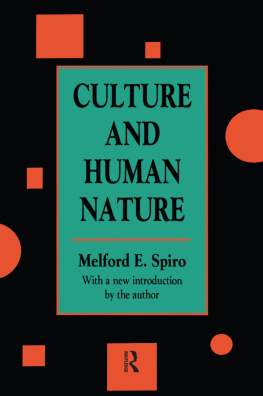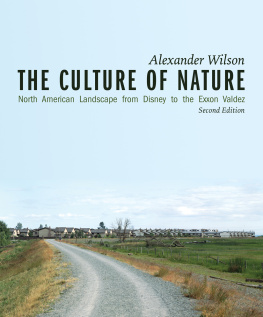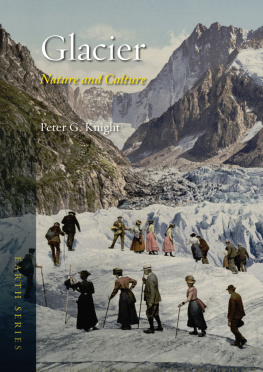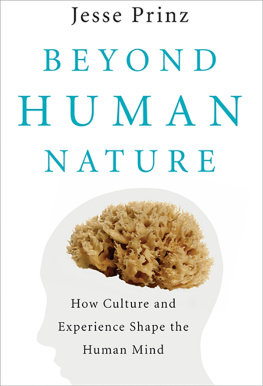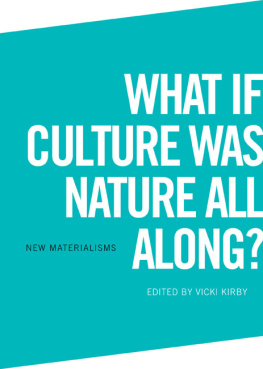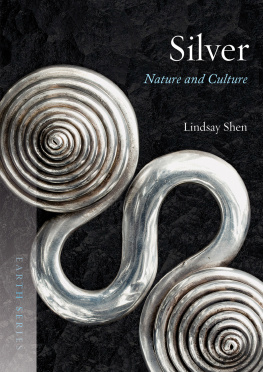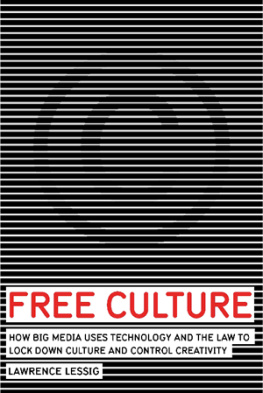Descola - Beyond Nature and Culture
Here you can read online Descola - Beyond Nature and Culture full text of the book (entire story) in english for free. Download pdf and epub, get meaning, cover and reviews about this ebook. City: London;Chicago;Ill, year: 2014, publisher: The University of Chicago Press, genre: Romance novel. Description of the work, (preface) as well as reviews are available. Best literature library LitArk.com created for fans of good reading and offers a wide selection of genres:
Romance novel
Science fiction
Adventure
Detective
Science
History
Home and family
Prose
Art
Politics
Computer
Non-fiction
Religion
Business
Children
Humor
Choose a favorite category and find really read worthwhile books. Enjoy immersion in the world of imagination, feel the emotions of the characters or learn something new for yourself, make an fascinating discovery.

- Book:Beyond Nature and Culture
- Author:
- Publisher:The University of Chicago Press
- Genre:
- Year:2014
- City:London;Chicago;Ill
- Rating:5 / 5
- Favourites:Add to favourites
- Your mark:
- 100
- 1
- 2
- 3
- 4
- 5
Beyond Nature and Culture: summary, description and annotation
We offer to read an annotation, description, summary or preface (depends on what the author of the book "Beyond Nature and Culture" wrote himself). If you haven't found the necessary information about the book — write in the comments, we will try to find it.
Beyond Nature and Culture — read online for free the complete book (whole text) full work
Below is the text of the book, divided by pages. System saving the place of the last page read, allows you to conveniently read the book "Beyond Nature and Culture" online for free, without having to search again every time where you left off. Put a bookmark, and you can go to the page where you finished reading at any time.
Font size:
Interval:
Bookmark:
Philippe Descola holds the chair of anthropology and heads the Laboratoire dAnthropologie Sociale at the Collge de France. He also teaches at the cole des hautes tudes en sciences sociales. Among his previous books to appear in English are In the Society of Nature and The Spears of Twilight. Janet Lloyd has translated more than seventy books from the French by authors such as Jean-Pierre Vernant, Marcel Detienne, and Philippe Descola.
The University of Chicago Press, Chicago 60637
The University of Chicago Press, Ltd., London
2013 by The University of Chicago
All rights reserved. Published 2013.
Printed in the United States of America
22 21 20 19 18 17 16 15 14 13 1 2 3 4 5
ISBN-13: 978-0-226-14445-0 (cloth)
ISBN-13: 978-0-226-14500-6 (e-book)
Originally published as Philippe Descola, Par-del nature et culture (Paris: ditions Gallimard, 2005). ditions Gallimard, Paris, 2005.
Cet ouvrage a bnfici du soutien des Programmes daide la publication de lInstitut Franais.
This work, published as part of a program of aid for publication, received support from the French Institute.
This work, published as part of a program providing publication assistance, received financial support from the French Ministry of Foreign Affairs, the Cultural Services of the French Embassy in the United States, and FACE (French American Cultural Exchange).
Ouvrage publi avec le soutien du Centre national du livre, ministre franais charg de la culture.
This work is published with support from the National Center of the Book, French Ministry of Culture.
Library of Congress Cataloging-in-Publication Data
Descola, Philippe, author.
[Par-del nature et culture. English]
Beyond nature and culture / Philippe Descola ; translated by Janet Lloyd.
pages cm
Originally published as Philippe Descola, Par-del nature et culture (Paris: ditions Gallimard, 2005). ditions Gallimard, Paris, 2005title page verso.
Includes bibliographical references and index.
ISBN 978-0-226-14445-0 (cloth : alkaline paper) 1. Philosophy of nature. 2. Human ecology. I. Lloyd, Janet (Translator), translator. II. Title.
BD581.D3813 2013
304.2dc23
2012036975
 This paper meets the requirements of ANSI/NISO Z39.48-1992 (Permanence of Paper).
This paper meets the requirements of ANSI/NISO Z39.48-1992 (Permanence of Paper).
For Lonore and Emmanuel
Just when many thought anthropology was losing its focus, parallel to the disruptive effects of global capitalism on the cultural integrity of the peoples it traditionally studied, along came this remarkable work by Philippe Descola offering a novel theoretical armature of ontological dimensions and universal proportions for knowing the varieties of the human condition. It had seemed that Claude Lvi-Strauss, the founder of Professor Descolas chair at the Collge de France, was the last of the Big-Time Thinkers of the discipline, the likes of the long gone and increasingly forgotten anthropological forebears such as E. B. Tylor, Lewis Henry Morgan, James Frazer, A. R. Radcliffe-Brown, Ruth Benedict, and A. L. Kroeber. These were scholars of wide ethnographic knowledge who could rise to the famous challenge of sapere aude by proposing comparative generalizations of large geographic scale and corresponding intellectual ambition. All that seemed history until Beyond Nature and Culture, whose title, by its intention of relativizing and transcending the fundamental Western opposition of nature and culture, already announced the scope of the authors project. Indeed Professor Descola marshals not only an all-continent ethnography but a broad philosophical erudition in which, since we of the West are also one of the Others, the likes of Plato, Aristotle, Leibniz, Spinoza, or Foucault sometimes appear in the capacity of natives rather than scholarly interlocutors. In the French homeland of the Enlightenment, however, this grand intellectual synthesis may not seem as extraordinary and unanticipated as it does on the North American scene upon which it now appears.
It is necessary to summarily set that scene in order to appreciate the innovative import of Professor Descolas work. The large increase in the number of North American anthropologists since the 1950s has been matched by their interest in increasingly varied and arcane cultural singularities. Just so, in the last couple of years juried articles have appeared in prestigious American anthropological journals on the gourmandization of hummus in Israel, the biopolitics of the US war on fat, pyramid schemes in postsocialist Albania, spatiality in Brazilian hip-hop and community radio, the occupy movement in ieks hometown, and new uses of the honeybee. We have also learned from studies of faith and authority in a Jordanian high school, deception and intimacy in Greek psychiatry, campus sustainable food projects, the response of religious Israeli women to the 2006 Lebanese war, local brands of pig farming in North Carolina, and postsocialist migration and slow coffee in northwest Chicago. (As I listened to an anthropological lecture recently on customs officers in Ghana, the thought flashed across my mind that we used to study customs in Ghana.) It is as if anthropology had reverted to the ontology that Professor Descola calls analogical and of which Europe in the Middle Ages and the Renaissance was a prime site. It was a world of minimal differences among the plenitude of existing things, human and nonhuman, whose potentially chaotic fragmentation could be reduced by powerful hierarchical principles such as the Great Chain of Being, but whose diversity lent itself to ad hoc discoveries of resemblance and difference between phenomena of disparate character and register. Using walnuts to cure migraines on the supposition that the similarity between the former and the human brain amounts to a signature left by God at the moment of the creation seems as closely motivated as the current functionalist attributions of diverse anthropological minutiae to such totalized circumstances as hegemonic power or neoliberal capitalism. Still, the cultural flotsam left in the wake of the postmodern deconstruction could hardly find any other explication than the global domination of capitalism, as this was the only totalized narrative that somehow escaped the antistructural terror. Otherwise, the critique of essentialized categories and relations in favor of such popular notions as contested discourses and permeable boundaries made indeterminacy the preferred conclusion of cultural investigation. Certain politico-academic tendencies, moreover, abetted the epistemological anarchy, both from the right and the left: neoliberalism, with its privileging of individualism and its hostility toward collective order in general; and the various emancipatory movements contending against racism, gender inequality, homophobia, and third-world oppression, for which the dominant structures were justifiably the enemy. In sum, we are passing through an antistructural age.
Beyond Nature and Culture offers a radical change in the current anthropological trajectorya paradigm shift, if you willthat would overcome the present analytical disarray by what amounts to a planetary table of the ontological elements and the compounds they produce. (The chemical metaphor is the authors own preference.) The project is a comparative anthropology of ontology. Four basic ontological regimes of wide distributionanimism, totemism, analogism, and naturalismare developed from an investigation of the identities and differences between humans and other beings and things in matters of their physical makeup and subjective or mental capacities. Each of these major ontologies is associated with specific ways of forming social collectives and characteristic moralities, as well as distinctive modes of knowing what there is. Further, the major ontological configurations are cross-cut by several types of relationshipexchange, predation, production, and so onthat are variously compatible or incompatible with them. Such is the general architecture. To thus state it, however, only betrays the richness of the text, which is marked by carefully described and analyzed ethnographic demonstrations, including much from the authors own fieldwork among the Achuar of Amazonia. Nor can this bare description convey the fertile promise of Professor Descolas project. Since the original appearance of the book, for example, he mounted a presentation of the four regimes in the form of visual images in an impressive installation at the Muse du quai Branly (Paris). Yet perhaps something of the innovative character of
Next pageFont size:
Interval:
Bookmark:
Similar books «Beyond Nature and Culture»
Look at similar books to Beyond Nature and Culture. We have selected literature similar in name and meaning in the hope of providing readers with more options to find new, interesting, not yet read works.
Discussion, reviews of the book Beyond Nature and Culture and just readers' own opinions. Leave your comments, write what you think about the work, its meaning or the main characters. Specify what exactly you liked and what you didn't like, and why you think so.

